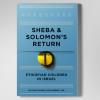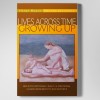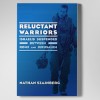Nov. 6, 2005
Rutie’s Tears
When Rutie, my teacher, finally broke into tears, it caught me in the throat. I could barely sing.
It began simply. Our ulpan classes gathered in Shulamit’s Tent for music. Opher, the moshav-dweller who plays piano — and flute, and accordion (which he prefers; feels at one with the instrument) and directs the choir, and gives us the tours, and is the secular Torah/Mishnah/Gemarrah teacher — hugs me as I enter, remembers me from two years ago. Embraces me with one of those bear hugs that Mizrahi Jews are better at than us Ashkenazim.
We are preparing for a Rabin memorial ceremony next week with the visiting army troops. The troops will sing for us, and in appreciation, we practice to sing for them. An Israeli gift. So, this gaggle of Argentine-accented, and French-accented, even two Japanese-accented Hebrew students and a couple like me, are directed in Opher’s spirited manner as he plays a tuneless piano, or dons his accordion. Before each song, Opher invites a teacher to read
and speak of the lyrics, we should know whereof we sing. [Later, I recall that Plato wanted to ban poetry (at that time, sung lyrics) from the Republic, as music bypasses the rational and goes straight to the heart. So, right he is about that. Leonard Bernstein gives five characteristics by which to judge good music, then tacks on a sixth: does it hit straight to the heart.]
At Rutie’s turn, we are to sing “
Shir L’sholom,” “Song to Peace.” She’s reluctant to come up, looks shy. So at odds with her character, she of gelled/hennaed/spiky hair, diminutive body built too small to contain the eruptive enthusiasms. Then she goes on quite at length, first of the story of its last singing by Rabin before he was shot, then line-by-line, word-by-word, so we absorb its depth. (Now, I see she was temporizing, delaying how much this tune, these words, would strike her heart, a direct shot.) Not only did Rabin, ten years ago, at first reluctantly join the singing, then lustily and tunelessly (like Opher’s piano) join all the other cabinet ministers on stage sing along to Yaakov Rotblit’s and Yair (“enlighten”) Rosenbloom’s song, but also afterwards, folded the lyrics, placed them in his inside left breast pocket, where it did not stop either of the two bullets shot into him by Yigal Amir; bloodsoaked instead.
I don’t have words persuasive enough to capture what happened to Rutie next. First, her voice dropped as we lustily chorused along, then the blotchiness ascended her throat, crept around the eyes, until this blood leaked into tears and she turned away from us and her music stopped. This caught me a bit by surprise (tears still come as I write this and listen to the music from Rav Hovel (“Captain, my Captain,” Wordsworth’s poem to Lincoln after his head-shot assassination.)
Front and center photo last weekend Ha’aretz is a shot of assassin Amir standing, gun still elevated as Rabin’s body is stretched part way into the back seat of the car, bodyguards crouched, guns drawn and…not firing. I martial on with the singing, I do not hear others’ voices catching, but I become concentrated on a voice,mine continuing.
Here is my unpoetic translation of Rabin’s last song:
“Give us the sun to rise/ To light the morning./ Our morning prayers/Won’t bring them back./ Whomever’s candle is snuffed out/and buried in the dust/ My bitter tears will not raise him/ Won’t return him from there. Our man won’t be brought back/ From the black pit beneath/ From there, no victory celebration/ No songs of praise.
Therefore, only sing a song to peace/ Don’t whisper prayers/ Better to sing a song to peace/ In a great shout.]
Give us the sun to penetrate/ For the flower’s sake./ Don’t look back/(continue walking./ Let your eyes in hope/ Not in the path passed/ Sing a song of love/ And not of wars!/ Don’t tell us — A day will come/ Bring us the day (so it won’t be a dream)/And in each town square/ Let us raise (a song) of peace.”Well, as if this weren’t enough,later that day I am innocently standingin a coffee shop — a bit too much later, a bit too tired — in Rehovot, waiting to meet a psychoanalyst, Ilany Kogan. I start a single espresso, which I soon spill shortly after the next song plays in the cafe. This song. I hear a familiar chorus, written by Shlomo Artzi after Rabin’s murder. The song is lengthy, the chorus short:
“Where are there more people/ Like this man./ Who was like the weeping willow.”
I don’t permit myself to recognize it at first; ask the waitress, who shrugs as she tries to name it; she flips through my music notebook and fingers it for both of us, a bit in victory. Then the tears begin to crowd the back of my throat (and I spill my precious espresso). Too much feeling at the anniversary of Rabin’s death.
The waitress is a darling. Removes my spilled espresso, wipes the counter dry so that I can replace my notebook, returns with a fresh espresso. (Should you ever be in Rehovot, it is Idan and Susan’s, across and down the street from the Weizman Institute. And should your cell phone be dead, they will let you call your friend or colleague from their phone.)
Simon Perez, asked if he had hope for peace, responded that without hope (Ha’Tikvah), this Land could never have been built. When Moses sent spies to check the lay of the land before the Jews from Egypt could enter, one spy described the land as one, “that eats its inhabitants.” And yet we still sing of it as one of milk and honey.
Copyright N. Szajnberg 2005



